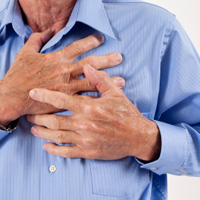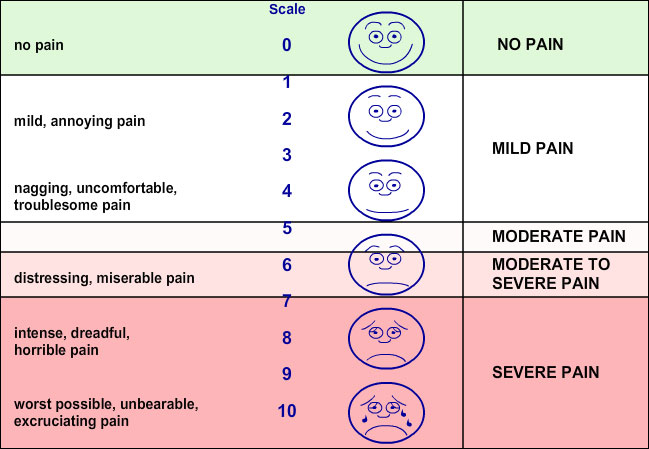Each year, six million adult patients in the U.S. see their doctor because of chest pain.
Chest pain may be caused by a variety of factors that may include diseases such as coronary artery disease, gastro-intestinal pain such as acid reflux (“Hiatal Hernia”), pain from your lungs (pneumonia, or a collapsed lung), “costochondritis”, physical injuries or a host of other factors.
The evaluation of chest pain begins with a medical consultation that includes an examination and evaluation of potential problems with
- Your Heart.
- Your lungs,
- Your GI tract,
- Other causes:
- Your Musculoskeletal system,
- Local infection/inflammation,
- Chest pains associated with Anxiety or stress.
If you are concerned about angina, try this Prediction Questionnaire.
top «
Any pain in your body needs to be judged on its severity, location, type of pain, whether it radiates to a different location, and whether it is associated with other symptoms. Your doctor will begin by including the following questions:
1) How bad is your pain:
2. Where is your pain located?
Is your pain located in your front, back, side or just everywhere?
Can you point to exactly where this pain is located?
3. What type of pain do you have?
Is your pain dull,
Sharp (like a knife),
Like something is tearing inside,
A heavy feeling, or
Hard to describe?
4. Is there anything you do that makes this pain worse, or is your pain predictable with any type of activity?
Worse with Exercise,
Present at rest,
Worse with deep breathing,
Worse with a specific position, like leaning forward,
Worse with eating, swallowing or relieved by food,
Pressing on the painful area?
5. Are your Symptoms associated with:
Arm pain, jaw pain, back pain,
Coughing and/or difficulty breathing,
Coughing up blood,
Palpitations,
Nausea,
Excessive sweating,
Fever, and wheezing.
High (or low) blood pressure,
Difficult or painful swallowing?
The diagnosis is made by using all the tools modern medicine has to offer. Sometimes this means excluding major illnesses first such as angina or a heart attack. Sometimes it means that to make a diagnosis multiple observations and tests are necessary. Chest pain associated with anxiety may particularly difficult to diagnose, especially in a person with many other problems.
Treatment for chest pain depends on the underlying cause. Musculoskeletal chest pain may be treated with rest, cold compresses, and non-steroidal anti-inflammatory (NSA) medications for pain. Angina requires treatment with medications that improve coronary blood flow. Chest pain due to pneumonia may require antibiotics.
Conclusion:
There are many causes of chest pain. The one that doctors worry about the most is cardiac because it has the potential to be life-threatening. Chest pain treatment depends on making a diagnosis and applying correct treatment to the underlying cause.
Please Seek emergency medical care if:
- You have uncomfortable pressure, fullness or squeezing pain in your chest for longer than a few minutes
- Your chest pain is accompanied by shortness of breath, sweating, nausea, dizziness or fainting
- The pain radiates beyond your chest to one or both of your arms or your neck


